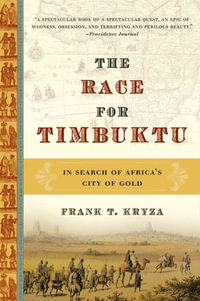Booktopia has been placed into Voluntary Administration. Orders have been temporarily suspended, whilst the process for the recapitalisation of Booktopia and/or sale of its business is completed, following which services may be re-established. All enquiries from creditors, including customers with outstanding gift cards and orders and placed prior to 3 July 2024, please visit https://www.mcgrathnicol.com/creditors/booktopia-group/

Mrs. Tsenhor
A Female Entrepreneur in Ancient Egypt
eBook | 1 April 2014
At a Glance
eBook
RRP $35.20
$28.99
18%OFF
Instant Digital Delivery to your Booktopia Reader App
ISBN: 9781617975691
ISBN-10: 1617975699
Published: 1st April 2014
Format: ePUB
Language: English
Publisher: The American University in Cairo Press
You Can Find This eBook In
This product is categorised by
- Non-FictionHistoryRegional & National HistoryAfrican History
- Non-FictionBusiness & ManagementEntrepreneurship / Start-ups
- Non-FictionEconomicsEconomic History
- Non-FictionArchaeologyArchaeology by Period & RegionEgyptology and Egyptian Archaeology
- Non-FictionSociety & CultureSocial GroupsGender StudiesGender Studies: Women and Girls
- Non-FictionBiographies & True Stories BiographiesBusiness & Industry Biographies
- Non-FictionBiographies & True Stories BiographiesHistorical, Political and Military Biographies
- Non-FictionHistoryEarliest Times to Present DayAncient History to the Year 500
- Non-FictionSociety & CultureSocial Issues & ProcessesFeminism & Feminist Theory
























